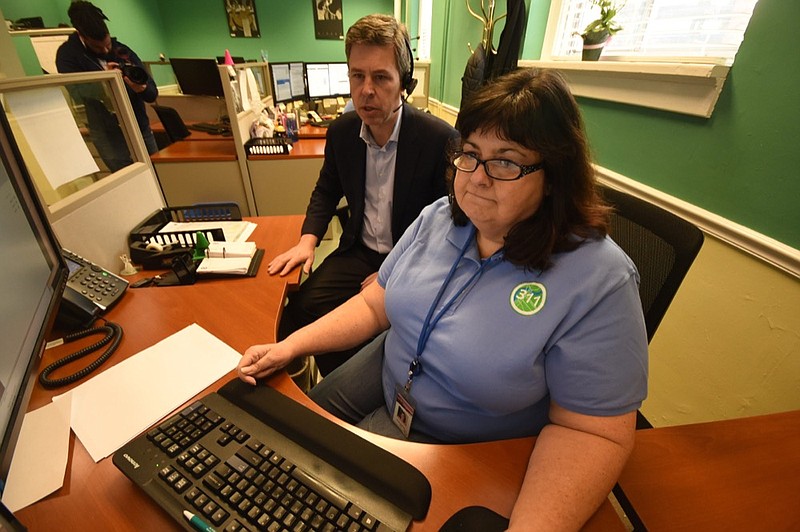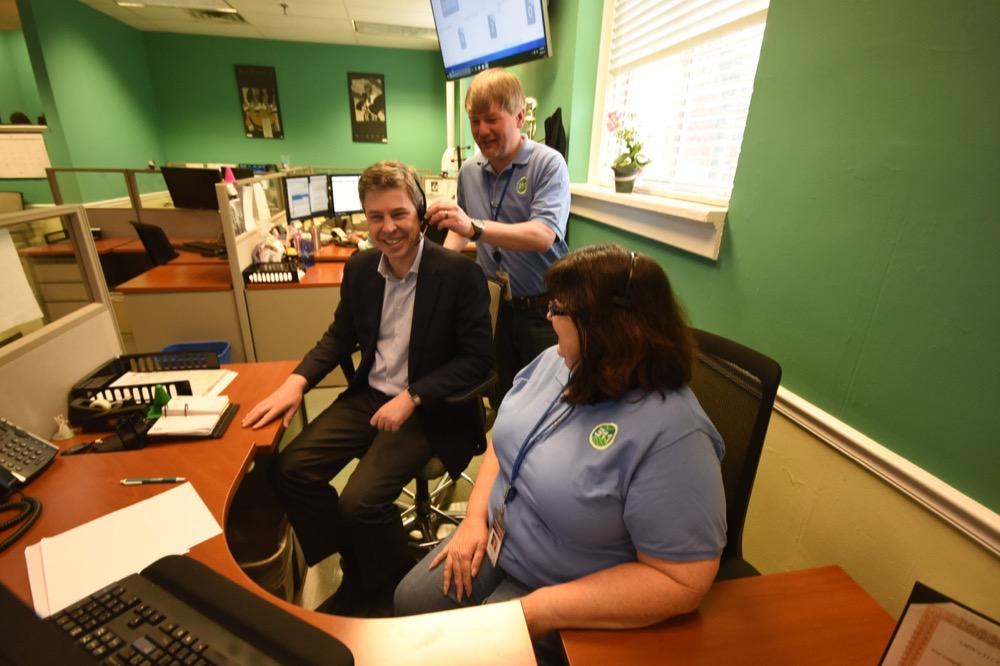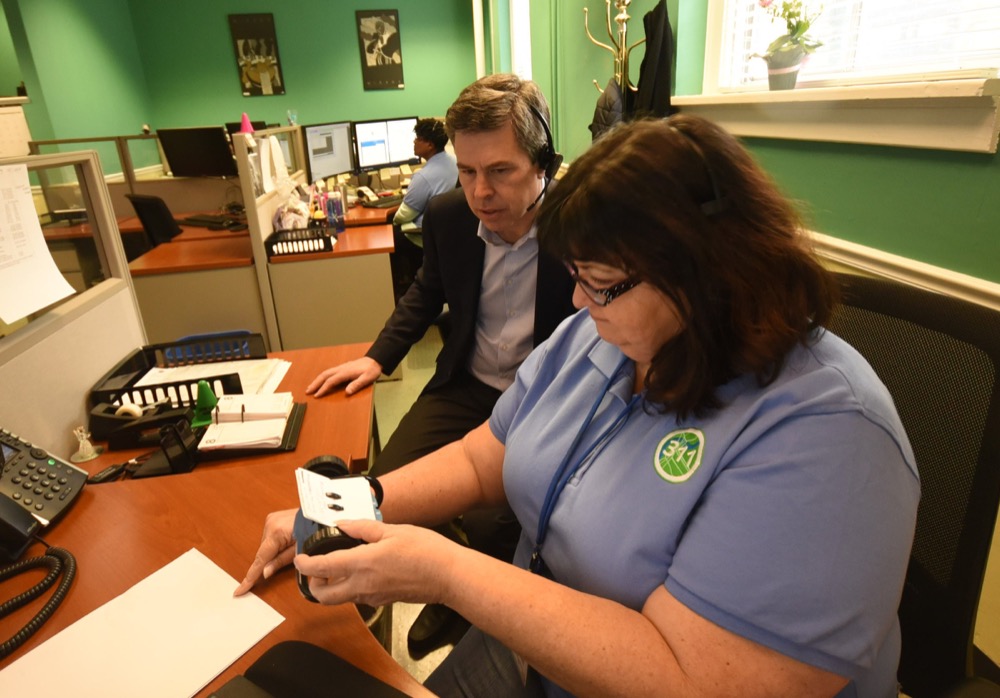Sixteen years since the city's 311 call center inception, Chattanooga officials are claiming success as the city marks National 311 Day.
The center, which serves as the public's one-stop hub for non-emergency business with local government, started fielding calls on Feb. 6, 2003, according to Times Free Press archives. That included a testing period.
Chattanooga 311 call volume
2019 YTD - 112,8262018 - 165,9172017 - 184,5352016 - 194,8382015 - 81,188
During that first month of operation, more than 8,000 calls came in for a multitude of issues, from Public Works and Recreation department calls to traffic administration and city court issues, such as traffic citations.
Over the next two years, the center attended to more than 280,000 calls. Now, the center fields an average of 181,763 calls in just one year, with a sharp increase in call volume since 2015.
The department offers both English- and Spanish- language service and operates from 8 a.m. to 6 p.m. each weekday, with Monday being its busiest day, said Derek Frizzell, 311 customer service manager.
"I think a lot of it is, most people are off on the weekends, so that's when they do their yard work. And so a lot of people are calling or submitting requests on Monday to have us come out to pick up brush, or whether they clean the garage out, or anything like that," he said.
Residents can call after-hours, too, for certain emergency requests, such as sewer overflow or a backup, a traffic light malfunction or a stop sign down, according to the city's 311 Facebook page.
While Chattanooga officials say the city was one of the first mid-size cities to implement the 311 system, it was Baltimore that launched the first-ever 311 service in 1996.
In fact, after seeing such success in Baltimore, the Federal Communications Commission decided to reserve the code for use nationwide to "improve the effectiveness of 911 emergency services by alleviating congestion on 911 circuits," according to an FCC 1997 news release.
The system was brought to Chattanooga by then-Mayor Bob Corker.
"I think it really came out of his experience as a candidate for mayor in 2001 and realizing that there was sort of a disconnect between people and their city government," said David Eichenthal, one of the local system's creators and former city finance officer and director of performance review under Corker.
"People felt that it was hard to ask about different services or make complaints or request certain services," he said. " People would play what I used to call 'blue pages roulette.' They would just kind of open a phone book and close their eyes and try to pick one number to start with."
So to create the system, Eichenthal and his team worked with all the different departments within the city to understand how they handled already existing calls.
"The really important thing about 311 is really to create a system where seamlessly a person can call, or now click, and ask for a government service and it automatically generates a request for that service."
But it wasn't until 2006 that all phone carriers added the quick dial number to their local networks. Then-Mayor Rob Littlefield's administration actually had to call the home offices for Nextel, Cingular/Bell South and T-Mobile to have the companies add in 311 access for the Chattanooga area.
Also since 2006, the service not only tracks service orders but the number of calls, hold times, transfers and other call-specific information.
In 2015, the center answered 81,188 calls. That year, the city had an average wait time of four-and-a-half minutes, and a 37 percent "abandon call rate," meaning the number of people who got frustrated and hung up before being helped.
In 2018, however, the number of answered calls shot up to 165,917 with a just-under-two-minute wait time and only a 15 percent abandon call rate.
That is thanks to improved operations from the city's data team, said Richel Albright, communications director for Mayor Andy Berke, who was elected in 2013.
The top three neighborhoods to see the highest service request volume in 2018 were:
»East Lake, with 2,818 calls for a population of 9,185
»St. Elmo, with 2,741 calls for a population of 1,388
»Missionary Ridge, with 2,406 calls for a population of 4,389
Those numbers do not indicate the amount of calls, however, because the system can only track geographical data for service requests, Albright said. Sometimes people call to pay a sewer bill or ask about city court issues, which wouldn't require an address to be noted.
In 2016, the city launched a mobile app for residents to file requests and attach photos of problems. Future plans include finding a new or upgraded system with more capabilities, Albright said.
Eichenthal said he thinks people take access to government services for granted.
"[It] doesn't matter who you are or where you live, but the ability to pick up a phone or submit a request online and have a system in place where it can get addressed well and in a timely way was a little bit of a revolution at the local government level," he said.
Contact staff writer Rosana Hughes at rhughes@timesfreepress.com or 423-75 7-6327 with tips or story ideas. Follow her on Twitter @HughesRosana.


